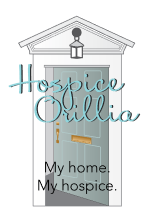Each year on October 15th, the world observes Pregnancy and Infant Loss Remembrance Day, a day dedicated to acknowledging the deep pain and heartache experienced by families who have lost a pregnancy or an infant. Despite its profound emotional impact, this type of loss remains a deeply personal and often silent struggle for many, making it crucial to bring attention to the issue, support grieving families, and offer understanding.
Pregnancy and infant loss are often surrounded by silence and stigma. The families affected frequently feel isolated, unsure how to openly share their grief, and left grappling with overwhelming emotions. Healing from such a loss is neither linear nor straightforward; it is a complex journey that varies for each individual.
“Supporting those who have lost a baby or pregnancy requires love, patience, and understanding, for in their sorrow lies the strength to heal, and in your compassion, they find solace,” says Louise Brazier, Bereavement Services Coordinator with the North Simcoe Muskoka Hospice Palliative Care Network (NSMHPCN). “Sometimes, the greatest support you can offer is not in the words you say, but in the presence you provide. In the quiet moments of grief, be the gentle shoulder to lean on, the compassionate heart to share in their pain, and the unwavering support that helps them find strength in the midst of their loss.”
The Pregnancy and Infant Loss of North Simcoe Muskoka (PILO NSM), a program offered by NSMHPCN, brings the community together to form a supportive network of resources for families who have experienced pregnancy or infant loss. There are many forms this type of loss can take, including:
- Miscarriage: A pregnancy loss before 20 weeks, affecting 10-15% of pregnancies.
- Stillbirth: The loss of a baby after 20 weeks of pregnancy, before birth. This type of grief is often beyond words.
- Neonatal Death: The loss of a baby within the first 28 days of life, often from congenital conditions or premature birth.
- Sudden Unexpected Infant Death (SUID): The sudden and unexplained death of an otherwise healthy infant.
Breaking the silence surrounding pregnancy and infant loss is the first step in providing the support these families need. It’s essential to create a safe, non-judgmental space where grieving parents can express their emotions, fears, and pain. Support from friends, family members, and the wider community plays a key role in this journey.
If you know someone who has experienced a pregnancy or infant loss, here are ways you can offer meaningful support:
- Listen: Sometimes, the most important thing you can do is listen. Allow parents to share their feelings without trying to “fix” anything.
- Empathize, Don’t Compare: Avoid phrases like “I know how you feel.” Each person’s grief is unique, and comparisons can diminish their pain.
- Offer Practical Help: Grief can make daily tasks difficult. Offering to help with meals, errands, or childcare can be incredibly supportive.
- Remember Anniversaries: Acknowledging significant dates like the baby’s due date or the anniversary of the loss shows that you care and remember.
- Respect Their Choices: Everyone processes grief in their own way. Some parents may want to talk openly about their experience, while others may prefer privacy. Respect their needs.
Raising awareness about pregnancy and infant loss is essential for several reasons:
- Reducing Stigma: Awareness helps break the taboo surrounding these losses, encouraging more open discussions and reducing the sense of isolation many parents feel.
- Connecting Families to Resources: By raising awareness, more families can be connected to grief support groups, counselling services, and other resources that help them navigate their grief journey.
- Promoting Research: Increased awareness can foster more research into the causes and prevention of pregnancy and infant loss.
Pregnancy and infant loss affect countless families worldwide, yet too often, they suffer in silence. By raising awareness, showing compassion, and creating supportive communities, we can ensure that these families do not grieve alone but find solace in shared understanding and empathy. Through our collective efforts, we can bring hope and healing to those who have endured this heartbreaking journey.
For more information on supports available, please visit https://hospiceorillia.ca/pilonsm

